In Pictures: Mauna Loa erupts
- Published
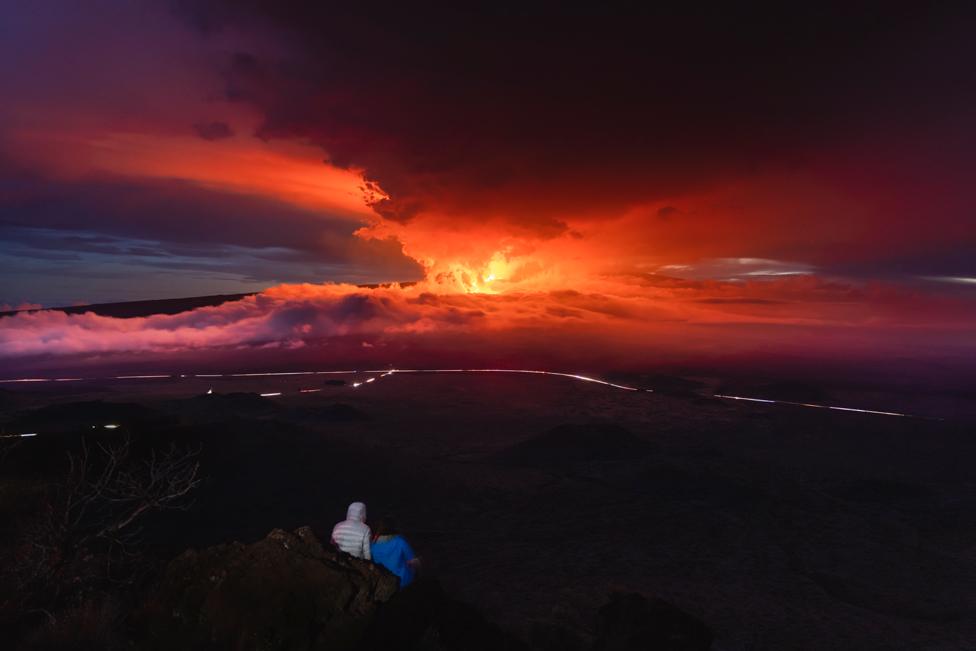
Mauna Loa - the world's largest active volcano - is erupting for the first time since 1984.
Lava is flowing down the side of the volcano at a temperature of 1,000C, but experts say this does not yet pose a big threat to local inhabitants.
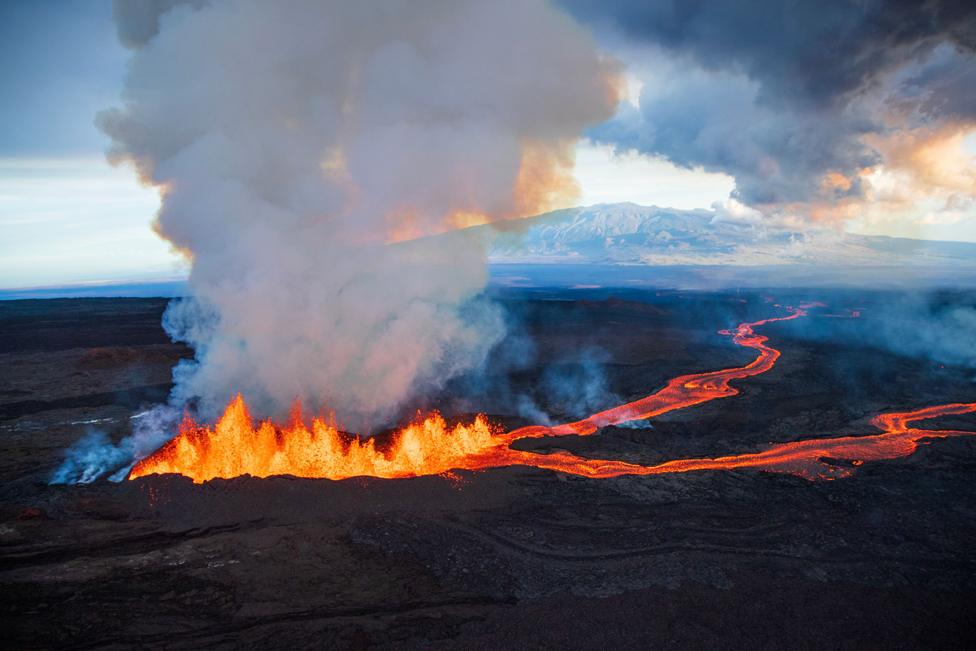
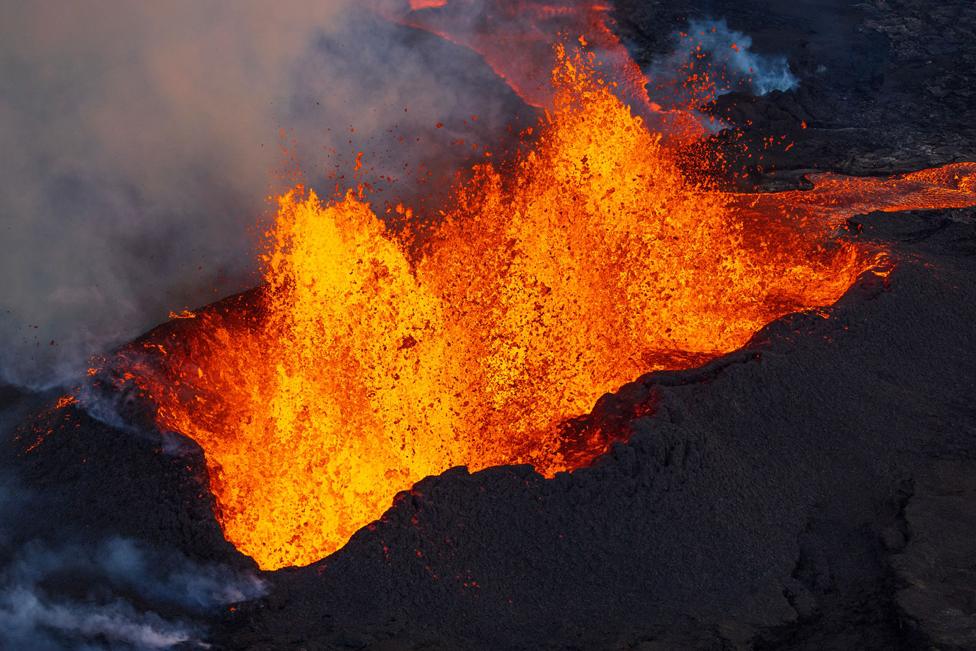
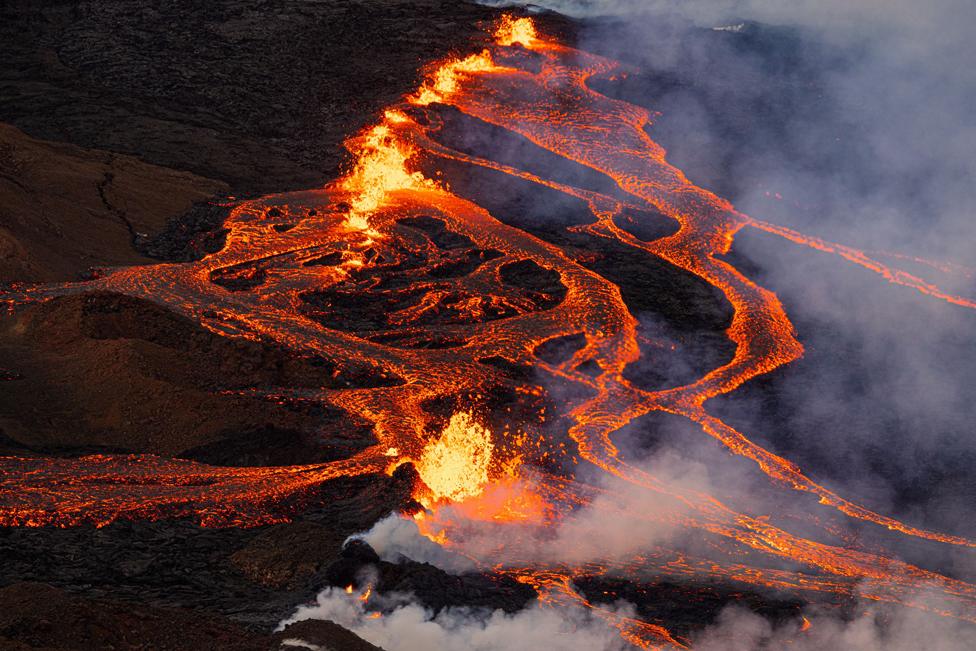
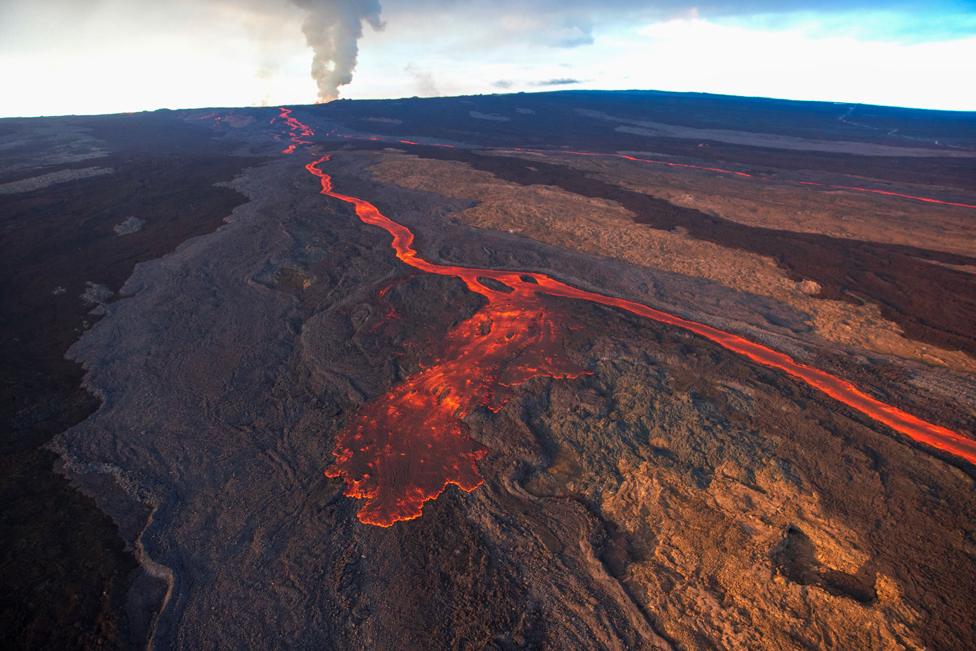
Mauna Loa, which means "long mountain" in Hawaiian, is the largest active volcano in the world.
It covers 2,035 sq miles (5,271 sq km), and is one of a chain of five volcanoes which form Hawaii's Big Island.
This one volcano alone comprises half of the whole island.
Mauna Loa's summit is 13,680ft (4,170m) above sea level, but its base is on the sea floor. From there to the summit is 30,085ft (9,170m), making it taller than Mount Everest.
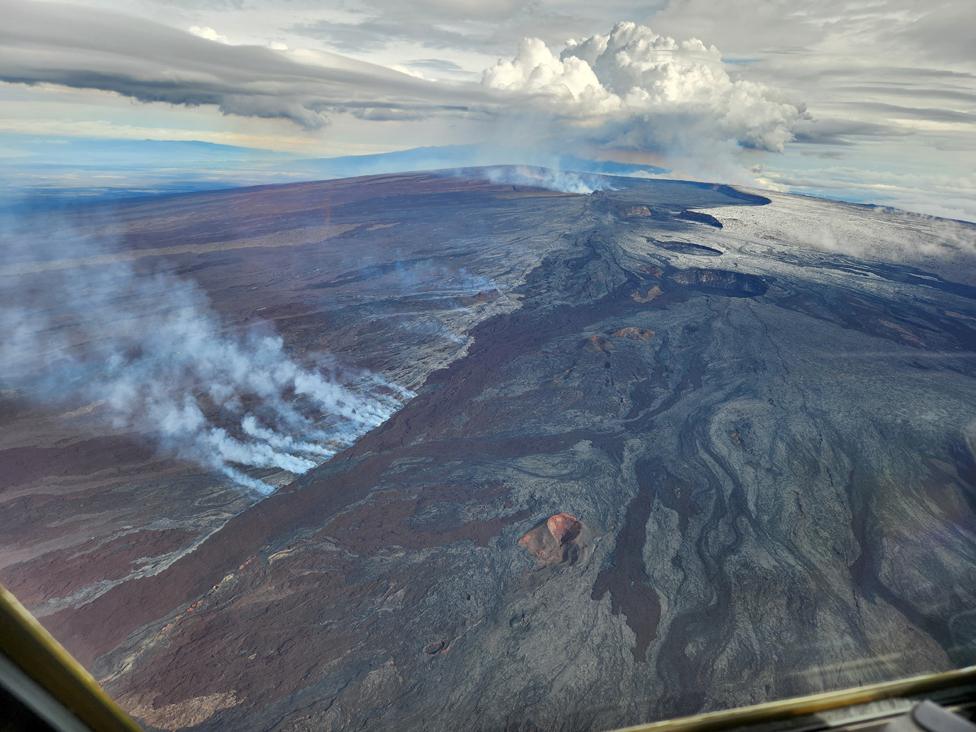

Plumes of super-heated material called magma have been welling up underneath Mauna Loa and neighbouring volcanoes from a "hotspot" deep within the Earth.
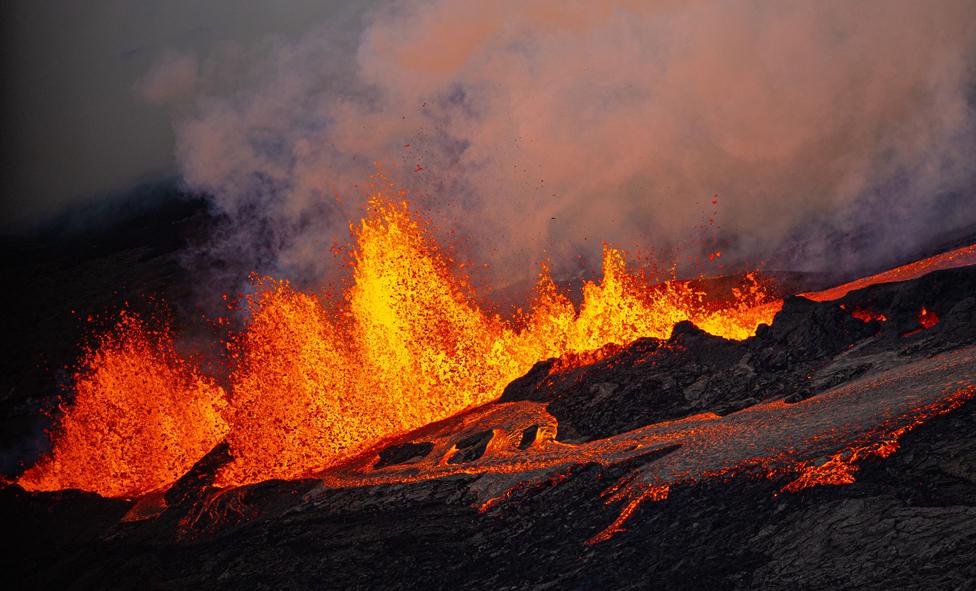
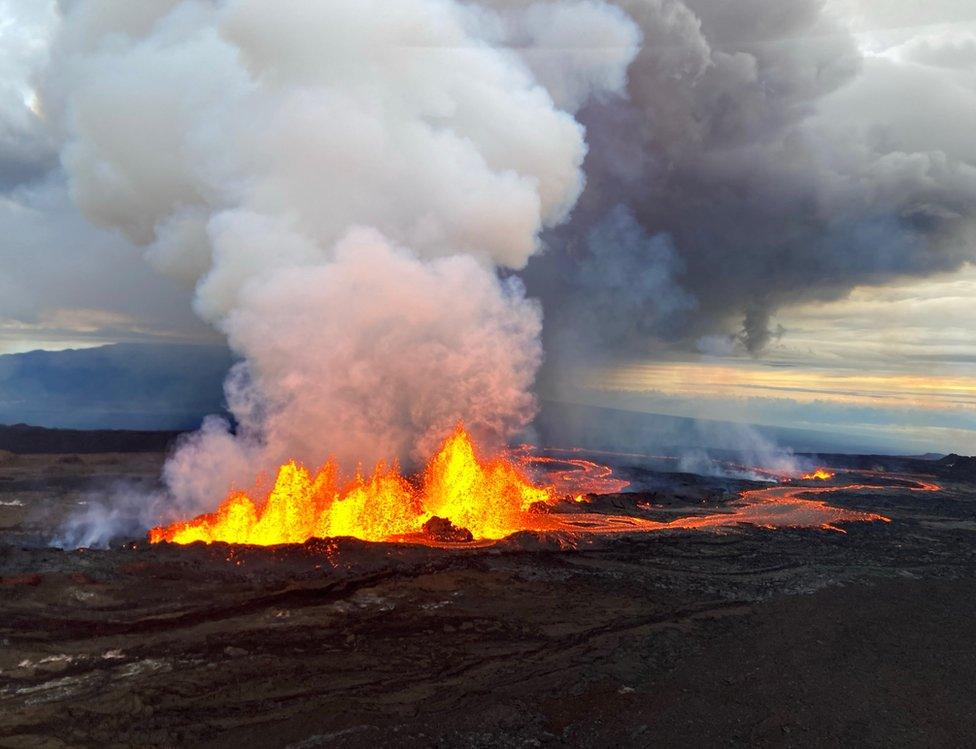
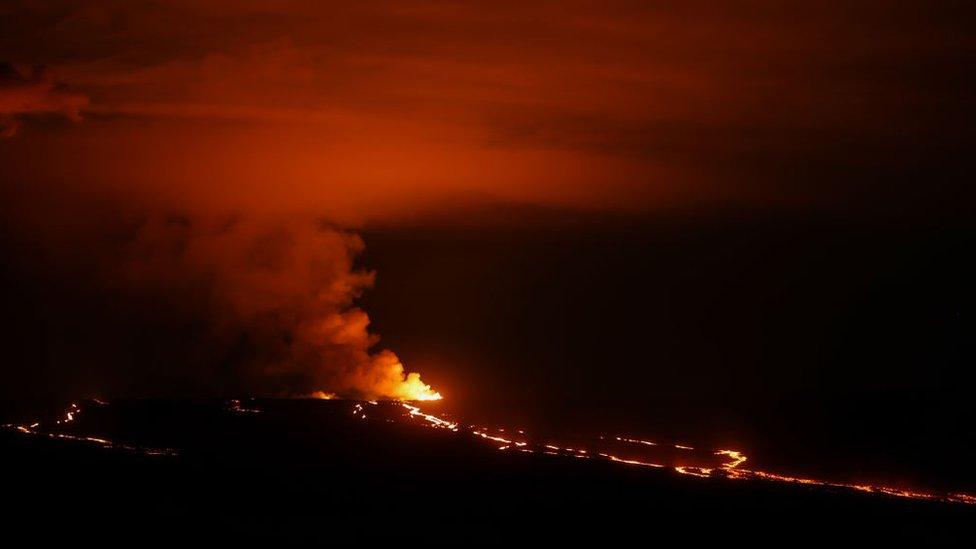
Unlike many volcanoes, Mauna Loa usually does not produce really explosive eruptions, in which lava shoots into the air along with plumes of ash and gas.
Instead, the lava flows at a fairly slow pace down the volcano's side.

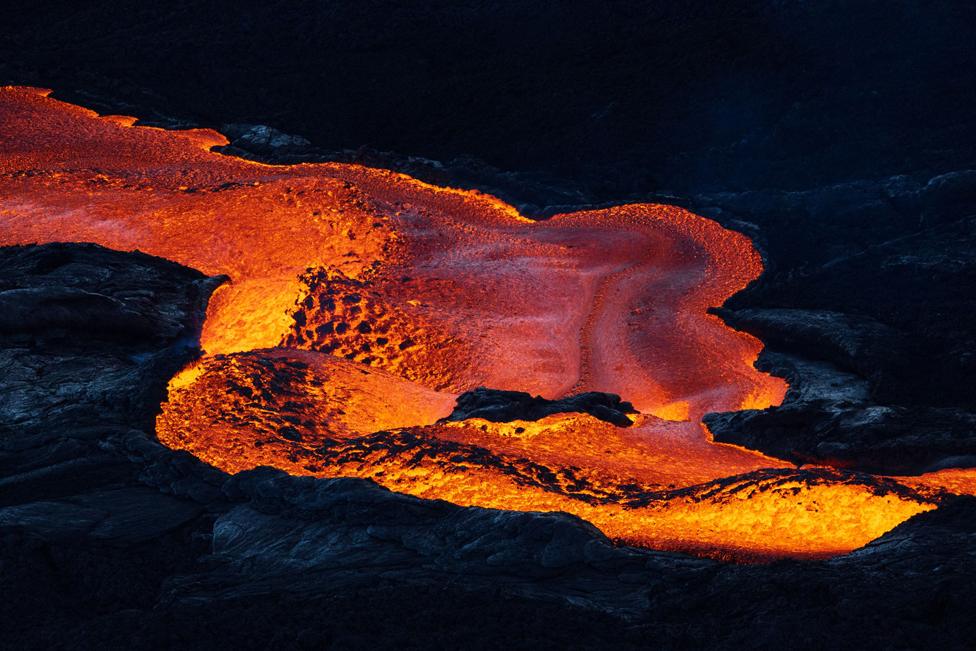
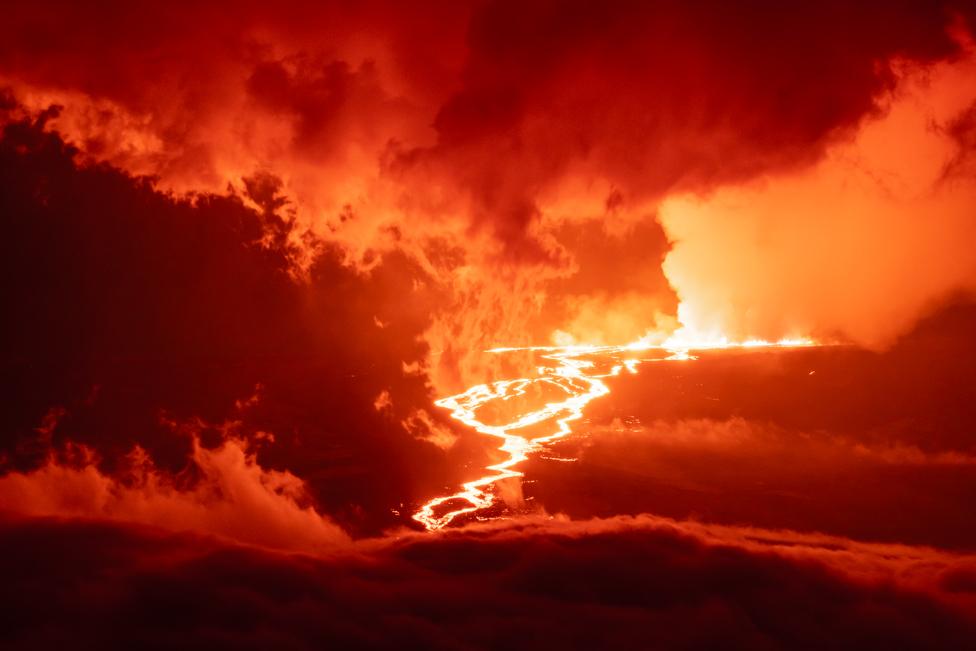
Local people may be at risk from the gases which Mauna Loa is emitting.
The health authorities in Hawaii say that air quality is still good, but that it could get worse at any time.
If it does, local residents are advised to avoid outdoor activities and to stay indoors with doors and windows shut.
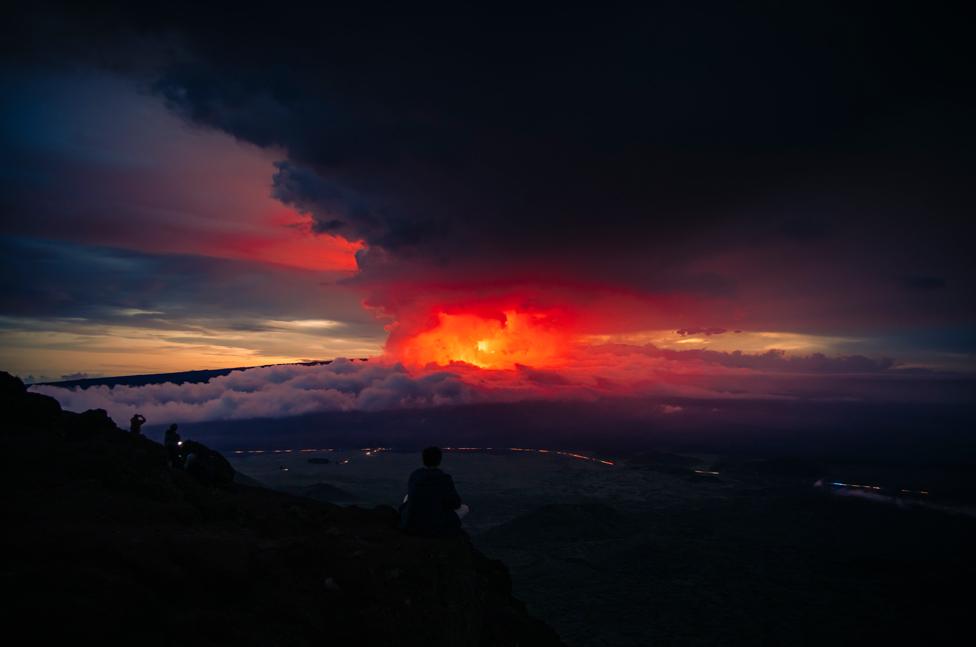
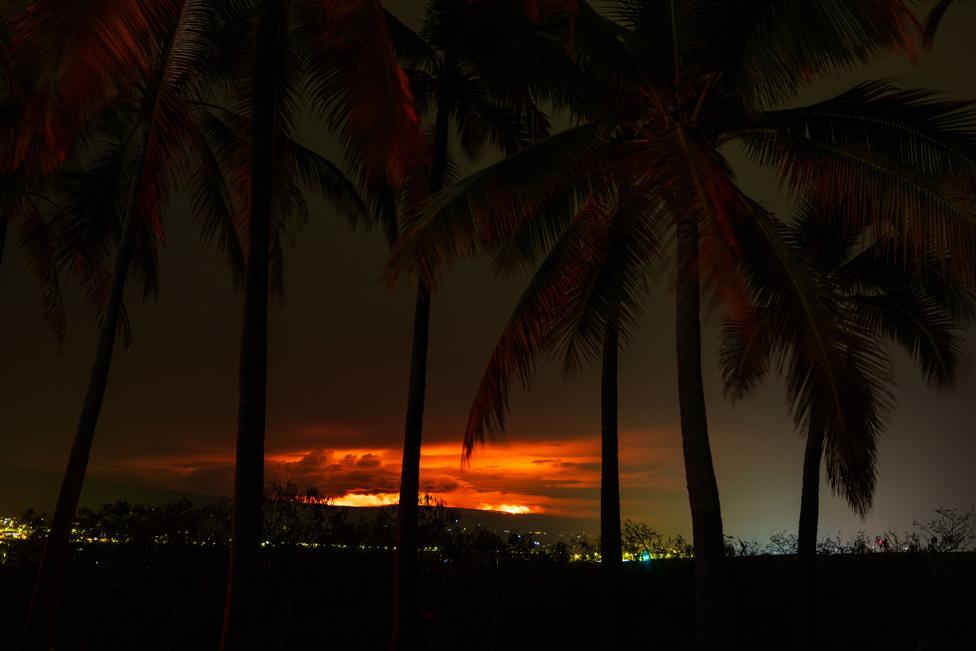
Mauna Loa has erupted 33 times since 1843, the date of the first recorded eruption. On average, that it is one eruption every five and a half years.
However, the last eruption was in 1984, as seen in the images below.
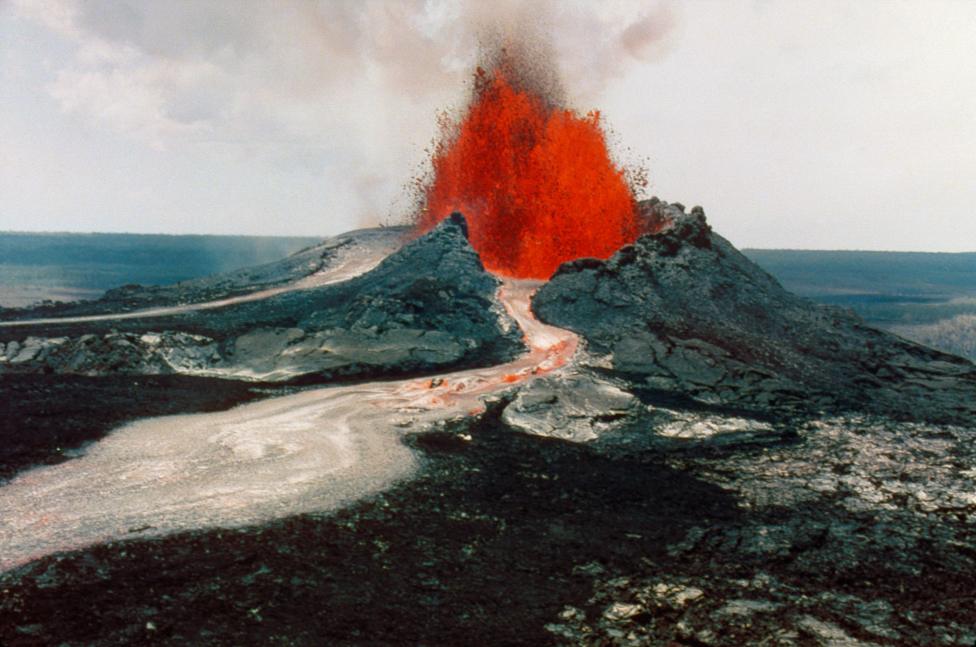
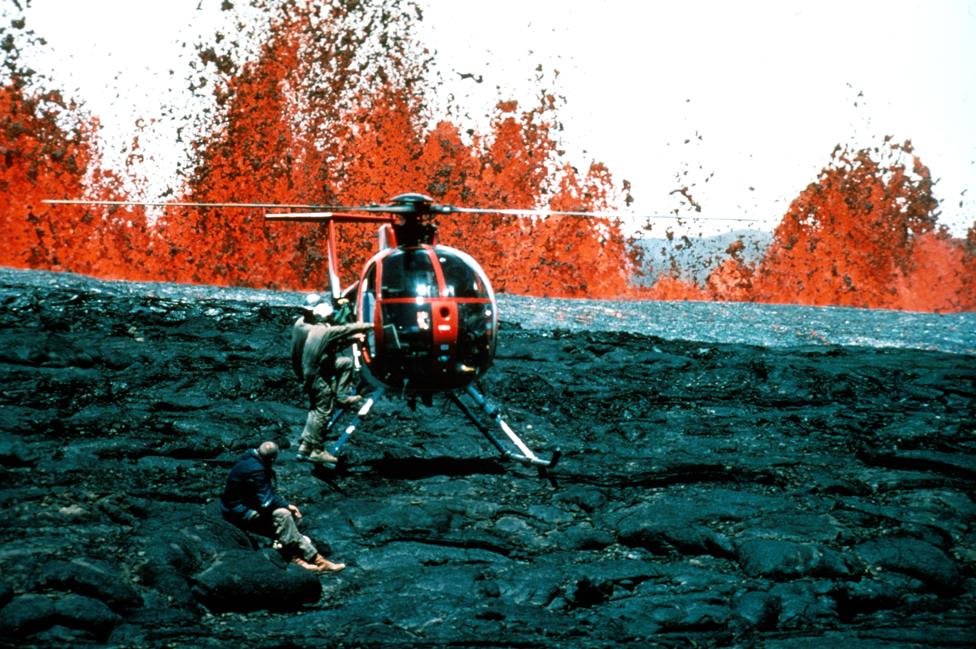
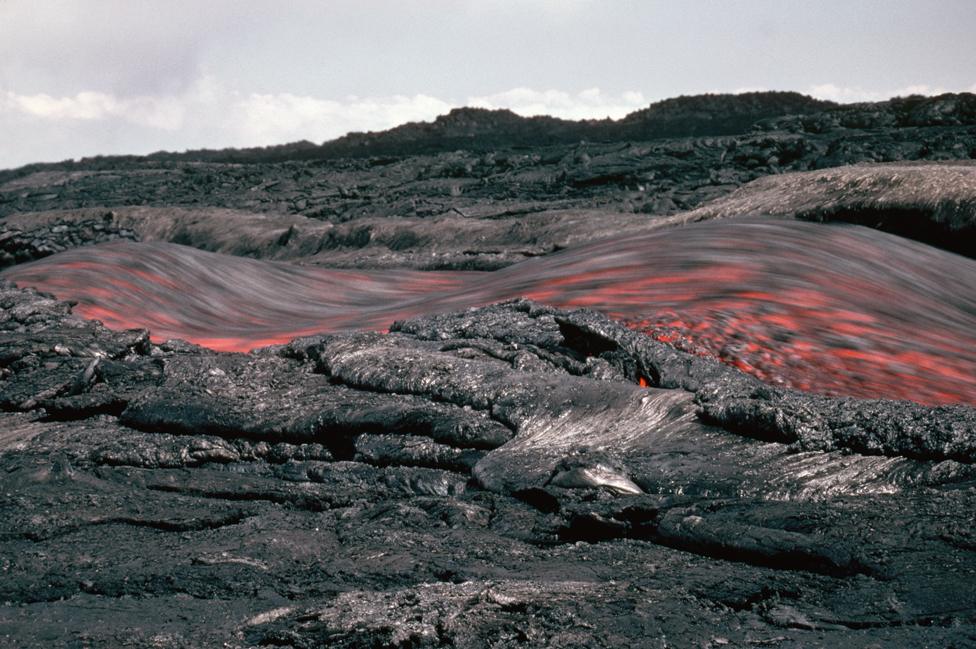
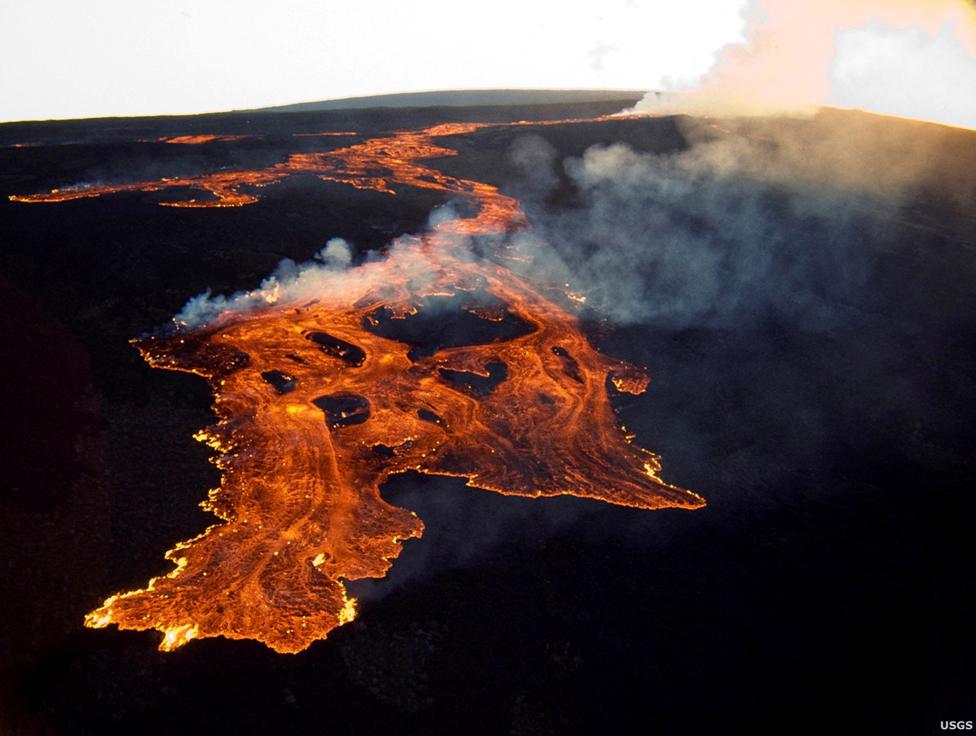
All pictures subject to copyright